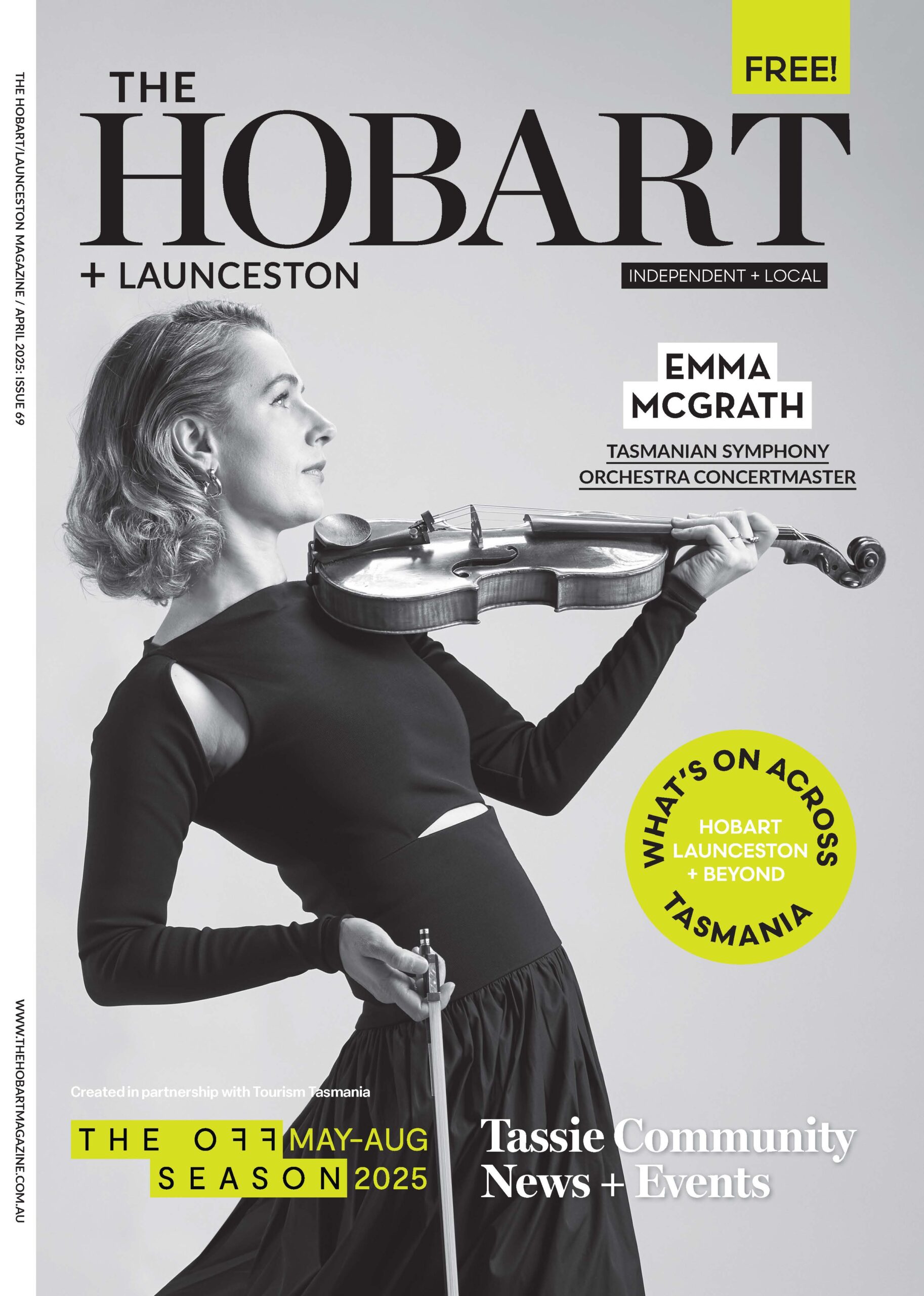Actor, Campaigner, Explorer Essie Davis
by Stephanie Williams

Our geography seeps into our being. It can take grit to withstand chilling winters and stinging rain, isolated (even more so now) from some things that people interstate and overseas may take for granted. But people from Hobart have a certain way about them that can be both grounded and in flight at the same time.
Actor Essie Davis embodies this dichotomy. She grew up on the Eastern Shore with creative parents and lots of siblings, enjoying simple pleasures of beachcombing and wilderness exploration. Graduating from NIDA in the early 90’s, she built on her years of youth theatre in Tasmania to work with Bell Shakespeare straight out of drama school. Essie continued to earn critical acclaim and international awards, such as the Laurence Olivier Award for her performance in the National Theatre (UK) production of Tennessee Williams’ A Streetcar Named Desire. In more recent years her diverse body of screen work has continued to expand. You might recognise Essie from her lead role of Phryne Fisher in Miss Fisher’s Murder Mysteries, as the tormented, grieving Amelia in The Babadook or alongside Richard E. Grant in the mega-production Game of Thrones. She has also starred in a number of works directed by her husband, Justin Kurzel, most recently NITRAM, which opened late last month.
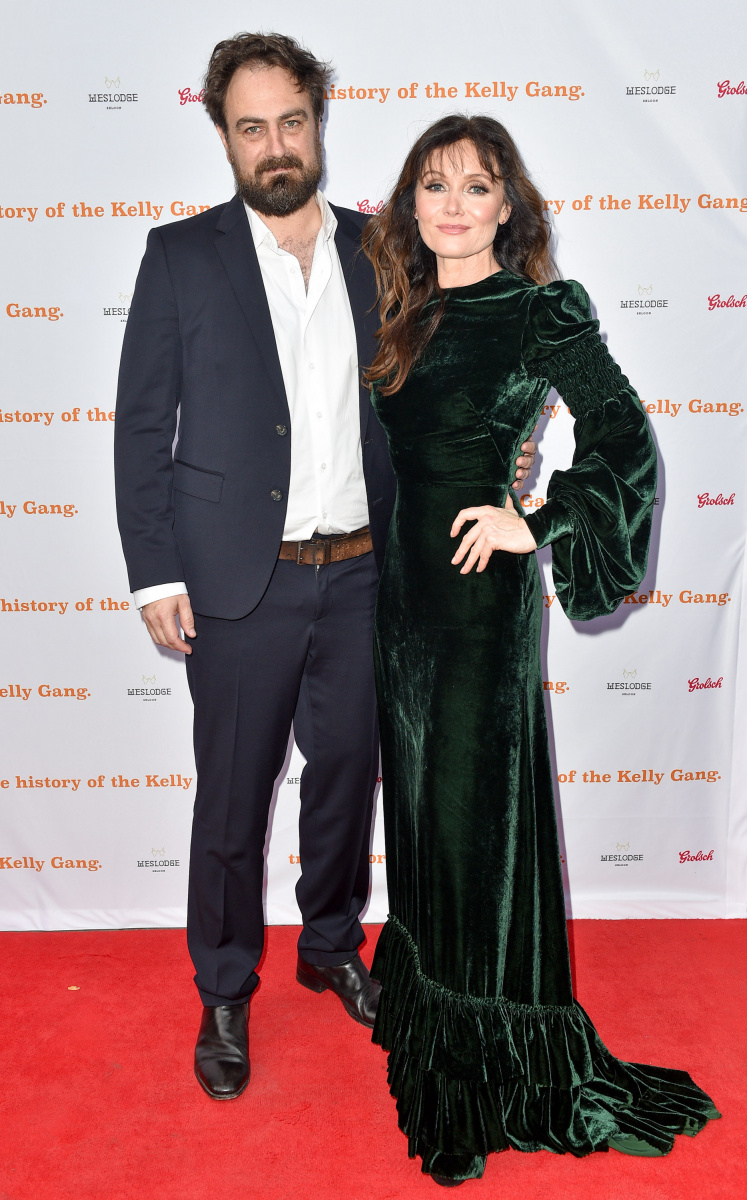
Almost two years ago now, I had the pleasure of spending the day with Essie for a story I was working on. So much has happened since then, with a global pandemic putting the brakes on most of Essie and Justin’s global work, but inspiring more local work. Essie is about to star in The Maids, the challenging 1947 play by French playwright Jean Genet, alongside fellow Australian actors Marta Dusseldorp and Stephanie Jack and produced by Archipelago Productions. This is Essie’s first play in Hobart since graduating drama school and her first in some time. “I haven’t done a play for twelve years so it’s really challenging to come in with such a dense piece of text but I have fellow actresses who are passionate and interested in exploring the work together.” When asked why audiences, particularly female patrons, are jumping on tickets in the lead up to The Maids, Essie shares, “Women in Hobart are intelligent and are wanting a night out to enjoy something like this play. Genet isn’t easy and is complex.”
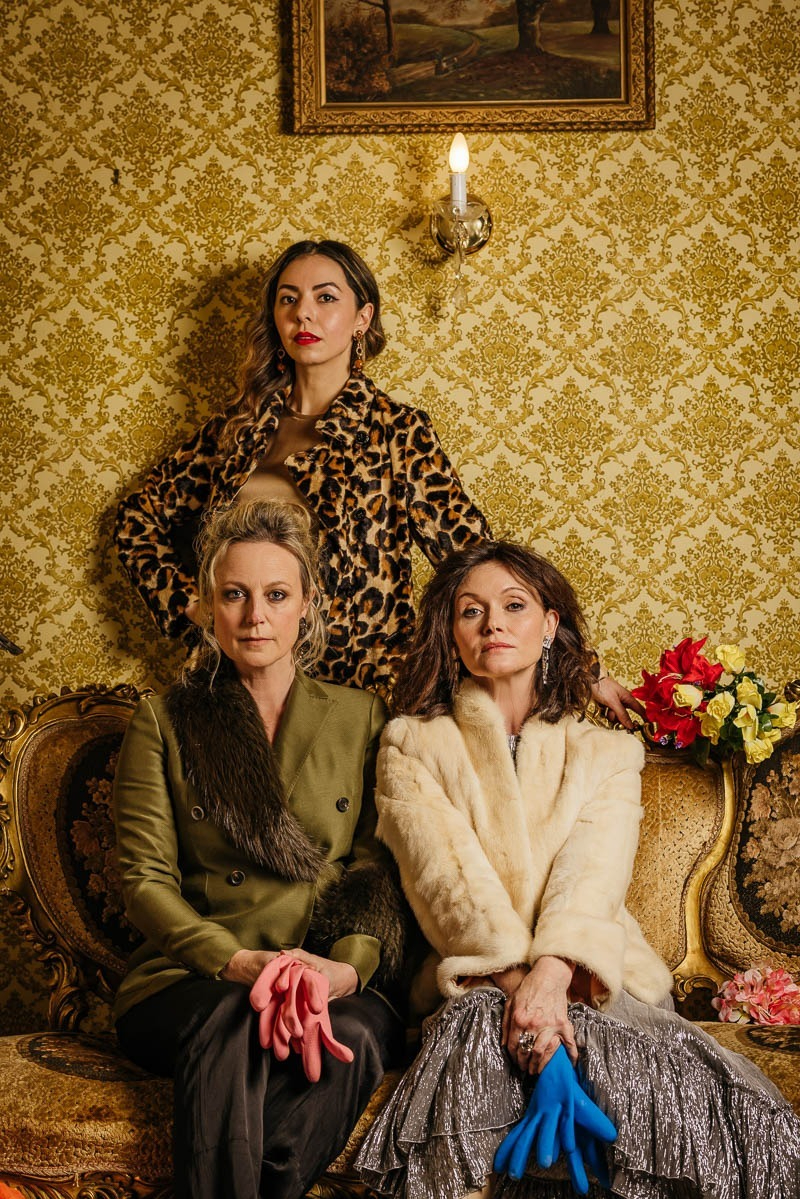
“It’s a present for the here and now. You’re either there for it or you’re not, you saw it or you didn’t. The gift is that Marta and I are here together now, so we decided to put something together,” Essie said. “We get to give Hobart and Tasmania and whoever else is allowed in a pleasurable, challenging and exciting show, watching a couple of damn good actresses muck around on stage together!”
Essie and Justin continue to challenge audiences with their creative partnerships. NITRAM depicts the events leading up to one of the darkest chapters in Australian history in an attempt to understand why and how the atrocity at Port Arthur occurred. In the film, Essie plays the role of Helen Mary Elizabeth Harvey. While the film recently won big internationally at the Cannes Film Festival, locally the subject matter has proven controversial. “Back when the project was seeking funding, there were media reports of government representatives not wanting to meet with the artists behind it,” Essie said. “I feel judging a piece of work that you know nothing about, that hasn’t been made yet, is a blinkered way of living life. If this was the case, I would’ve hoped they might’ve been interested in meeting some artists to, at the very least, talk about their potential concerns. I was surprised at the seeming lack of support for a project, when private investors were jumping to make this really adventurous and beautiful script.”
NITRAM was filmed during the pandemic, in a bubble in Geelong. “People came in from Tassie, Melbourne, Sydney, and we all played our roles. As each of our final scenes finished, we were released from the bubble,” Essie said. And does Essie think it should be prescribed viewing for Tasmanians? “It’s not something to be scared of, but I don’t want people to watch it if they don’t want to. It’s sensitively told and is a reminder of why we need strong gun laws.”
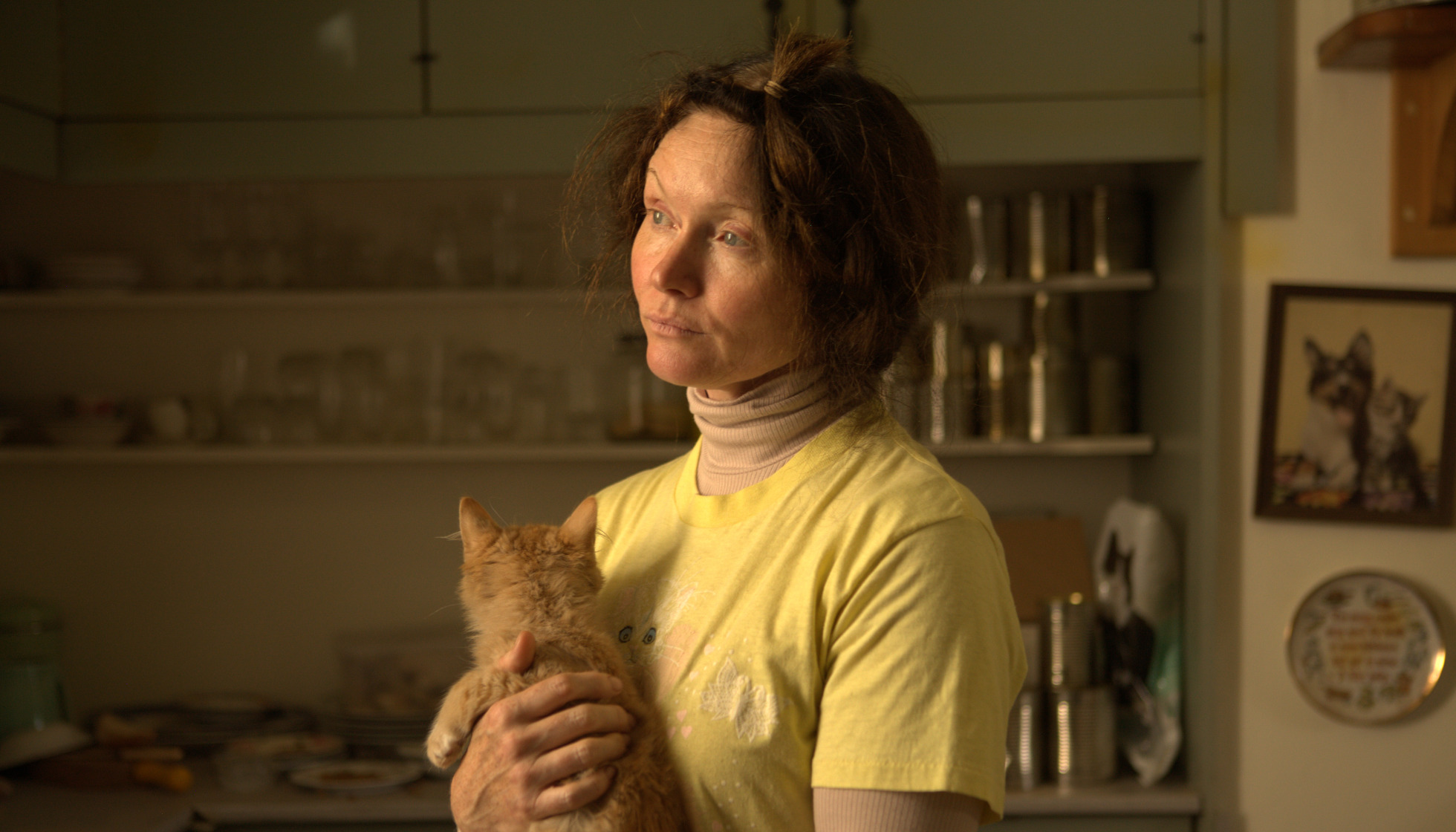
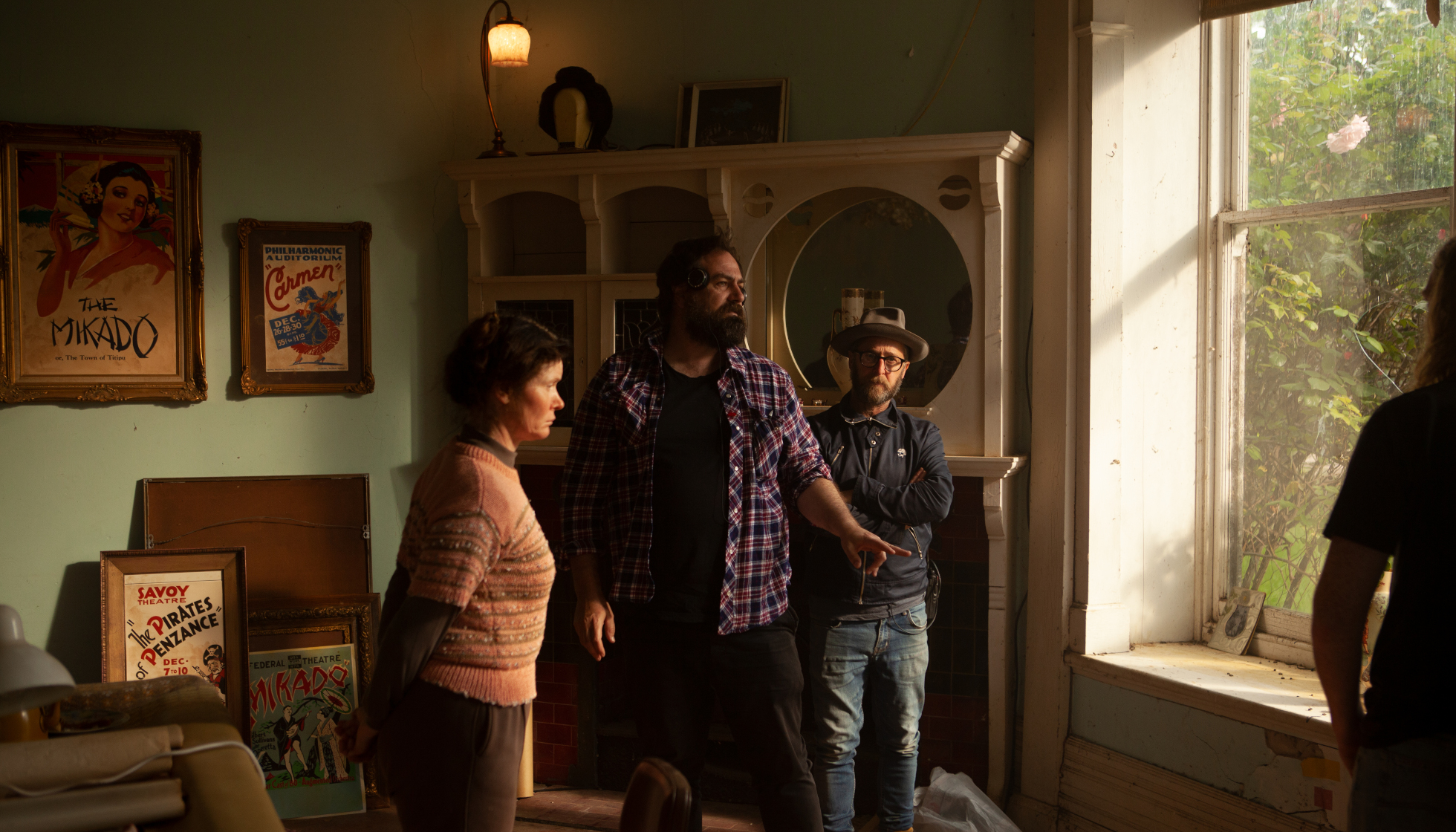
“It is really important that we don’t forget that this happened. I was nervous about making it, Justin and I were both extremely nervous about making it. But this is not a celebration, and it is not an eyewitness re-enactment, it has very little violence in it.”
Essie has also managed to complete a project in Canada during the pandemic. “It became a bit stressful because Morrison announced they were cutting down on Australians returning from overseas. While I was away, Justin suddenly was called upon to go to Cannes (for NITRAM) so we had to piece together the care of our kids with our beautiful friends and family. And we eventually both got back just in the nick of time!”
In recent times, Essie has become a vocal campaigner to halt the expansion of salmon farming in Tasmania, after noticing a decline in sea life and an increase in algae and “Every time you crossed on the ferry to Bruny, you’d sail past a dolphin. He’d be swimming along beside you. I haven’t seen a dolphin in there for a very long time.” Upon moving to Bruny Island Essie and Justin became aware of the local sentiment. “We discovered more and more people who had been complaining for years and being affected by it in all different ways.” Essie said. “Justin decided to make a documentary and Flan (friend and writer Richard Flanagan) said, “right, I’m going to write an article about this.” The more people were asked, they said, “you must talk to so and so.” And it developed into the book Toxic.”
Driven by a fear that sea life may be lost to her children to explore, Essie has continued to campaign. “We were just trying to get them to silence their generators and try and keep a lid on the noise of their boats and their lights. I was getting more and more worried about the sea-life and the lack of it,” Essie said. “I know there’s so much to fight for, particularly in Tasmania, and I will keep on fighting for those things, even though I don’t want to be an activist. I just wanted to have a beautiful, lovely, quiet time looking at rock pools with my children.” When asked what would a good outcome would look like, Essie said, “Moving operations well in-land with a completely independent regulator who cares about the environment and the science, and listens to the scientists, because they have largely been ignored.”
It’s obvious that her love for and of Tasmania runs deep – across storytelling, acting, campaigning and exploring. And her upcoming local work is evident of that – after trying for many years to get quality productions to our state. “I tried often to get productions to tour Tasmania. It was always a promise that never eventuated or it was too hard for them. It’s really exciting to do a piece of theatre for Tasmanians, in Tasmania, especially in a time when so many companies can’t bring their work here. And I’m really proud of that and NITRAM. I’d really love people to see it but no pressure.
Ahead of The Maids opening night, of Marta, Essie shares, “It’s a pleasure to work with another fine actress and to really be challenged by the text and together be nutting it out. It’s really lovely to be able to go into rehearsal space in Hobart and work professionally.”

